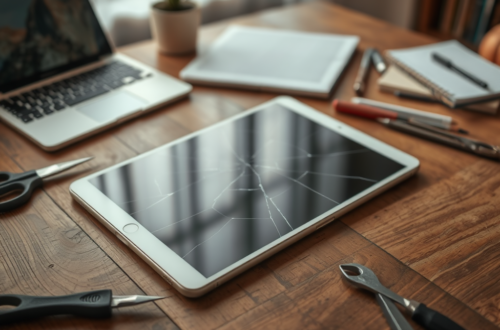When it comes to recording high-quality audio in 2024, choosing the right microphone is crucial. The market is brimming with options, but not all microphones can deliver the clarity and richness that professional recordings demand. This article explores the five best microphones suitable for various recording needs—from podcasting to music production—to ensure you invest in a tool that elevates your sound quality.
1. Audio-Technica AT2020

The Audio-Technica AT2020 is a well-rounded microphone that has garnered a stellar reputation among both beginners and seasoned audio engineers. Renowned for its versatility, this cardioid condenser microphone excels in studio recordings and live performances alike. Its wide frequency response of 20 Hz to 20 kHz ensures that it captures a broad spectrum of sound, making it ideal for vocals and acoustic instruments. With an impressive maximum SPL handling of 144 dB, the AT2020 can easily accommodate loud sound sources without distortion.
One of the standout features of the AT2020 is its affordability, making it accessible for content creators on a budget. Its durable build quality means it’s designed to withstand regular use, whether you’re recording music, podcasts, or voiceovers. Additionally, with low self-noise (20 dB), your recordings will remain clear and free of unwanted hiss or noise. Overall, this microphone provides fantastic value for anyone looking to enhance their recording setup.
2. Shure SM7B

The Shure SM7B is a legendary dynamic microphone known for its exceptional vocal reproduction. Widely used by top-tier musicians, broadcasters, and podcasters, the SM7B is engineered to minimize background noise and capture sound with remarkable detail. Its flat, wide-range frequency response is suitable for different vocal types, making it incredibly versatile for various applications. The microphone is also built to handle high sound pressure levels, making it a strong choice for loud instruments or vocal performances.
One of the most notable features of the SM7B is its switchable EQ settings, allowing users to tailor the microphone’s output to their specific needs. This feature makes it easier to achieve a desirable sound, whether you prefer a more bass-heavy tone or a brighter presence. The built-in air suspension shock isolation system also helps to eliminate mechanical noise, ensuring that only your voice or instrument shines through. Investing in the SM7B can elevate your sound quality to professional levels, truly making it a staple in the recording industry.
3. Rode NT1-A
The Rode NT1-A is another excellent condenser microphone that stands out due to its incredibly low self-noise level of only 5 dBA. This low noise floor makes it ideal for capturing delicate sound sources and nuanced vocal performances. The NT1-A features a wide dynamic range, enabling it to accommodate everything from whisper-soft vocals to the loudest guitar strums. Additionally, with a frequency response of 20 Hz to 20 kHz, this microphone captures the tonal characteristics of your recordings with amazing clarity.
A notable advantage of the NT1-A is its included accessories, such as a shock mount and pop filter, enhancing your recording experience right out of the box. The NT1-A’s sleek design and high-quality construction make it not only functional but aesthetically pleasing in any studio environment. Furthermore, this microphone is particularly effective for home studios, where clarity and detail are paramount but budget considerations are present.
The Blue Yeti is a standout USB microphone that has gained immense popularity among content creators, streamers, and podcasters for its exceptional ease of use and versatility. The Yeti features multiple pickup patterns—cardioid, bidirectional, omnidirectional, and stereo—allowing users to switch settings based on their specific recording scenario. Whether you’re recording solo or with multiple people in a room, the Blue Yeti adapts to meet your needs effortlessly.
One of the most appealing aspects of the Yeti is its plug-and-play functionality, making it instantly usable with no need for complicated setup or extra equipment. The built-in gain control and headphone output provide added convenience, enabling you to monitor your audio in real time. Its robust build quality, combined with an attractive design, makes it a staple choice for anyone venturing into the world of audio recording. Overall, the Blue Yeti proves that you don’t have to compromise on quality for convenience.
5. Sennheiser e825S
The Sennheiser e825S is a dynamic microphone designed specifically for vocal applications. Known for its high-quality sound reproduction, this microphone is ideal for live performances and studio recordings alike. With its rugged construction, the e825S is built to withstand the rigors of touring, making it a reliable choice for on-stage musicians. It offers excellent feedback rejection and low handling noise, ensuring that your voice comes through clearly in any environment.
One key feature of the e825S is its cardioid pickup pattern, which effectively captures sound directly in front of it while minimizing background noise from the sides and rear. This design enhances the clarity of vocals and is great for both live and recorded sound. The mic’s frequency response of 40 Hz to 16 kHz captures a full range of vocal tones, making it suitable for various singing styles. Additionally, its affordability makes it an attractive option for those just beginning their journey in audio recording.
Conclusion
Selecting the right microphone can profoundly impact the quality of your recordings. In 2024, the Audio-Technica AT2020, Shure SM7B, Rode NT1-A, Blue Yeti, and Sennheiser e825S stand out as the top choices for diverse recording needs. Each microphone offers unique features and advantages, ensuring there’s an ideal option for every musician, podcaster, or content creator. Whether you’re recording professionally or for personal projects, these microphones can help you achieve exceptional sound quality that elevates your audio experience.
Frequently Asked Questions
1. What is the best microphone for beginners in 2024?
The Audio-Technica AT2020 is often recommended for beginners due to its affordability, quality, and versatility.
2. Can USB microphones like the Blue Yeti be used for professional recordings?
Yes, the Blue Yeti is widely used for professional recordings, especially in podcasting and streaming applications.
3. What microphone is best for vocal recording?
The Shure SM7B and Rode NT1-A are both excellent choices for capturing vocals with clarity and richness.
4. How do I know which microphone is right for my needs?
Consider your recording environment, the type of sound source, and your budget to determine the appropriate microphone type and model.
5. Are condenser microphones better than dynamic microphones?
It depends on your application. Condenser microphones are more sensitive and better for studio recordings, while dynamic microphones often excel in live sound scenarios.





